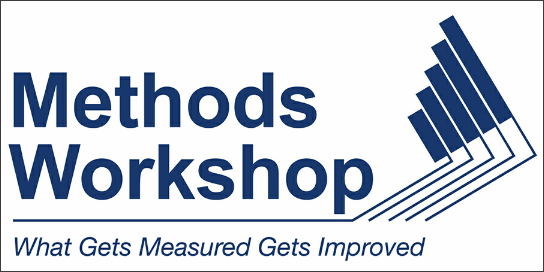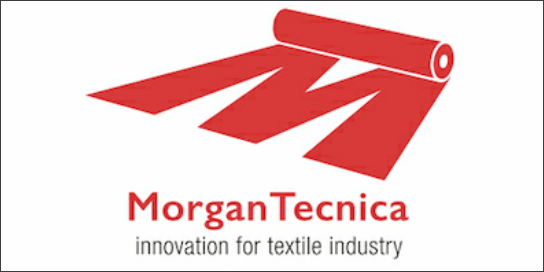
 |
|---|
 |
 |
 |
 |
 |
 |
 |
 |
 |
 |
 |
A little SPESA heaven in Texas
Sewn products industry engages in positive reshoring discussions at Executive Conference

Nancy Richardson of San Antonio Shoemakers – known in retail circles as SAS shoes – told the story of the company’s rich, 40-year history during SPESA’s Executive Conference.
The company’s CEO – chief enthusiasm officer, as she calls herself – gave a plethora of reasons why SAS is a great place to work, as evidenced by low turnover over the years, she said. In fact, none of the 13 original employees ever left the company prematurely, and five are still employed there, she added.
Comfort, craftsmanship define SAS shoes
Posted November 23, 2016
(Editor’s note: SPESA, the Sewn Products Equipment & Suppliers of the Americas, hosted two back-to-back conferences in San Antonio this month. This week, we review the annual Executive Conference and, next week, we’ll provide a recap of the Advancements in Manufacturing Technologies Conference.)
By Devin Steele (DSteele@eTextileCommunications.com)
SAN ANTONIO – Sam Simpson, vice president, Strategic Global Accounts for Gerber Technology, Tolland, Conn., was elected chairman of SPESA (Sewn Products Equipment & Suppliers of the Americas) during its annual Executive Conference here this month.
He succeeded Mel Berzack of Sewn Products Equipment Co., Jefferson, Ga., who served two years.
“What an honor for me,” to serve SPESA, said Simpson, who has spent 42 of his 47 years in the sewn products industry with Gerber. “The apparel industry is one of the three most important industries in the world, the other being food and shelter. As we’ve heard this week, it’s an exciting, changing time in the United States.
Leadership
Officers
-
Chairman: Sam Simpson, vice president, Gerber Technology
-
Vice Chairman: Nina McCormack, vice president & CFO, DAP America, Inc.
-
Secretary/Treasurer: Ed Gribbin, president, Alvanon, Inc.
-
President: Benton Gardner, SPESA
Board of Directors:
-
Mel Berzack, Sewn Products Equipment Co.
-
Melvyn Blore, Pegasus of America
-
Rolando Bohlemann, Schmetz Needle Corp.
-
Per Bringle, Eton Support
-
Yoram Burg, EFI Optitex (USA)
-
Mike Fralix, [TC]2
-
Martin Gopman, Universal Sewing Mach.
-
Ed Gribbin, Alvanon
-
Mark Hatton, American & Efird
-
Frank Henderson, Henderson Sewing Mch. Co.
-
Rick Ludolph, Productive Solutions
-
Nina McCormack, DAP America
-
Michael Rabin, Morgan Tecnica America
-
Eric Schlossman, Consew
-
Lonny Schwartz, Superior Sewing Mch. & Supply
-
Sam Simpson, Gerber Technology
-
John Stern, Methods Workshop

SPESA officers and board members on hand for the Executive Conference.

Also elected to two-year terms were: vice Chairman, Nina McCormack, vice president & CFO, DAP America, Inc.; secretary/treasurer: Ed Gribbin, president, Alvanon, Inc.; and president: Benton Gardner, SPESA.
Though not the formal theme of the Executive Conference, the topic of reshoring took center stage throughout the most speakers’ presentations, as you can read in individual industry-specific reports here.
The group also heard an inspiring message from Col. (Ret.) Lee Ellis, who spent 1,955 days as a Vietnam POW at the Hanoi Hilton. Ellis, founder and president of Leadership Freedom LLC, regaled the audience with gripping stories of his captivity and lessons learned there and throughout his life as a military hero.
Ellis, who grew up on a cotton farm and worked at Mount Vernon Mills textile plant in Commerce, Ga., during high school, espoused the virtues of leadership and, really, humanity during his engaging, hour-long talk.
Another speaker, Jonathan Fee, senior counsel at Alston & Bird LLC, Washington, D.C., discussed the U.S. elections, trade policy and the Trans-Pacific Partnership.
Attendees also heard reports from members of international partner organizations, including Elgar Straub, managing director, VDMA Textile Care, Fabric and Leather Technologies; and Michael Janecke, director, Brand Management, Messe Frankfurt.
Mike Fralix, president & CEO of [TC]2, moderated the conference and offered succinct and often amusing debriefs of each speakers’ presentations. In introducing the conference, he welcomed attendees with a potential new meaning for the acronym SPESA – Super People Entertaining in San Antonio.

Sam Simpson
“It’s also an exciting time for the Americas,” he continued. “SPESA is an organization for the Americas. The industry is adapting. It is changing. And we as suppliers have to do the same. There’s probably no more important time in our history than now where suppliers need to work more closely with our customers. We need to work closely with them so they can compete and grow because if they don’t compete and grow, we don’t compete and grow.”

John Strotbeck, CEO of Philadelphia-based Boathouse Sports, told the unique story of his made-in-the-USA custom athletic apparel manufacturer during SPESA’s Executive Conference this month.
Strotbeck, a two-time Olympic rower, founded the company in 1989 with the goal of outfitting elite rowers across the world, he said. And over the past 25 years, Boathouse has expanded its products to several sports across all performance levels, outfitting athletes across the country – all made in Philadelphia.
Boathouse Sports' made-in-America story

Mary Lynn Landgraf, senior international trade specialist with U.S. Dept. of Commerce/Office of Textiles and Apparel (OTEXA), covered the topic, “Reshoring: Reality of Fiction – Factors Impacting the Realization of Reshoring” during SPESA’s Executive Conference this month.
Early on, Landgraf mentioned a 1964 song by Bob Dylan titled, “The Times They Are A-Changin’ ” and noted that things are changing again after years of offshoring, U.S. job loss and mill closings.
OTEXA: The Times They Are A-Changin'
During SPESA’s Executive Conference, two representatives of Under Armour talked about the brand’s new UA Lighthouse manufacturing and design leadership center in downtown Baltimore.
Jami Dunbar, vice president of Lighthouse Apparel, and Marco Duarte, senior director at Lighthouse Apparel, said the company expects the center to be a catalyst for change in textile and apparel manufacturing and will help lead the reshoring movement in America.
UA's Lighthouse: A catalyst for change

Jami Dunbar of Under Armour

Marco Duarte of Under Armour

Jami Dunbar of Under Armour

Sandy Montalbano, a consultant to the Reshoring Initiative, gave a presentation on “Technology and TCO (Total Cost of Ownership), Together, Can Reshore the U.S. Apparel Industry” during SPESA’s Executive Conference this month.
Reshoring, backshoring, onshoring and insourcing all have similar definitions, ultimately meaning the same thing: bringing back the manufacture of products that will be sold or assembled here, she said. She explained how the initiative is helping.
Reshoring Initiative leading the effort

Han Bekke, president of the International Apparel Federation (IAF) and chairman of Modint (the Dutch Fashion & Textiles Association), covered “Localization and Globalization” during SPESA’s Executive Conference this month.
Bekke discussed a number of recent trends in world apparel trade before exploring the reshoring model. He concluded that it is unlikely that localization will dominate the fashion industry because there remains too much pressure for cheaper prices.





